Anatomy of Fake News
Featuring
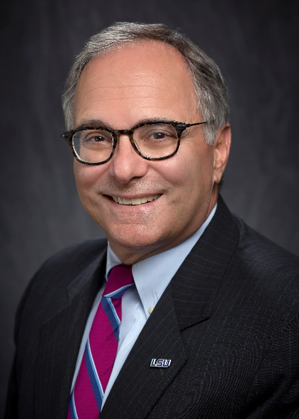
Len Apcar
Wendell Gray Switzer Jr. Endowed Chair in Media Literacy,
Professional in Residence, Manship School of Mass Communication
Len Apcar holds the Wendell Gray Switzer Jr. Endowed Chair in Media Literacy, is a fellow at the Reilly Center for Media and Public Affairs and a Professional-in-Residence. This spring he taught an honors course in media manipulation and fake news. Apcar has also been a Visiting Professor at the University of Hong Kong where he taught digital media courses.
In a nearly 40-year professional career at The New York Times and at the Wall Street Journal, he has been a reporter, Web editor, Washington editor and Asia editor. During his time as editor of nytimes.com, the site won virtually every major online award for news, opinion and photography.
As chief Asia editor based in Hong Kong he helped create a 24-hour global newsroom for online and print. At the Journal he was a reporter in Detroit, Washington and Dallas.
He holds an M.S. from Columbia University’s Graduate School of Journalism and a B.A. in political science from Claremont McKenna College in California.
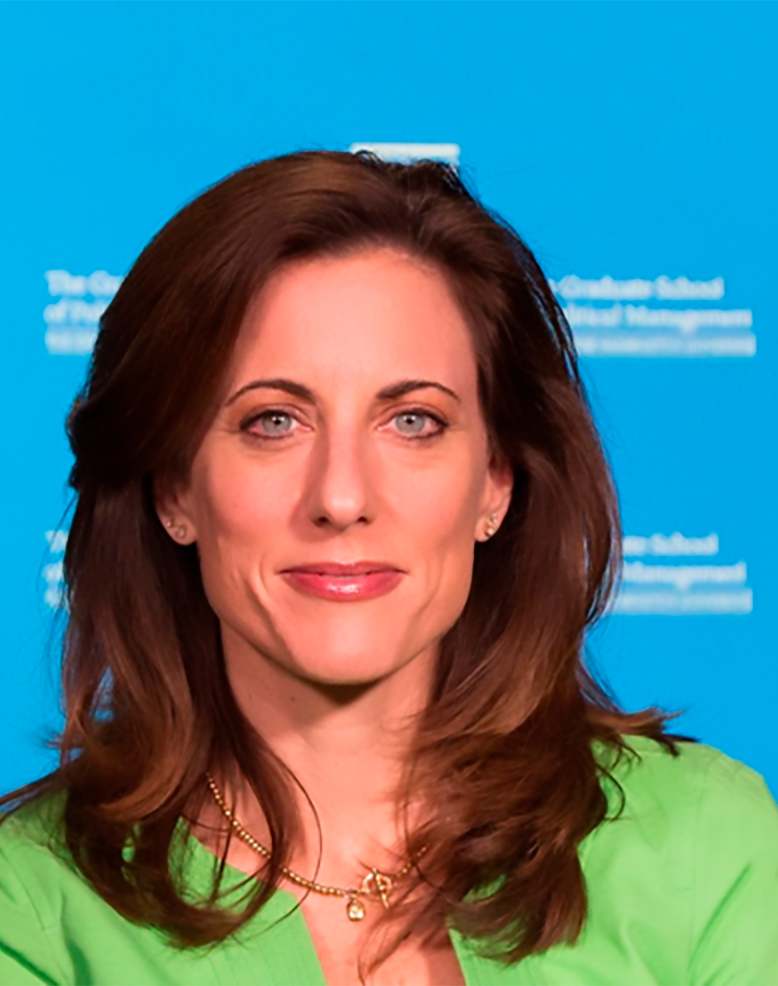
Lara M. Brown, Ph.D.
Director, Graduate School of Political Management,
George Washington University
A distinguished writer and dedicated scholar, Brown is the author of Jockeying for the American Presidency: The Political Opportunism of Aspirants, the first systematic study of presidential aspirants from the 1790s through 2008. She co-edited and contributed to The Presidential Leadership Dilemma: Between the Constitution and a Political Party and Campaigning for President 2016: Strategy and Tactics. She has also authored several book chapters in other scholarly volumes, such as The Presidency and the Political System and Hatred of American Presidents: Personal Attacks on the White House from Washington to Trump.
Her current research project (working book title: Mirror Images: The Gilded Age, the Global Age, and Federalism's Revival) is a comparative historical undertaking, which argues that America is presently undergoing a tumultuous period similar to what the country experienced during the Gilded Age.
Prior to coming to George Washington University, Brown served as an assistant professor in the Department of Political Science at Villanova University. Before returning to academia in 2004, she worked as an education policy consultant in Silicon Valley and Los Angeles. Brown also served as a political appointee in President William J. Clinton’s administration at the U.S. Department of Education.
Born and raised in California, Brown earned her B.A., M.A., and Ph. D. in political science from the University of California, Los Angeles. She also earned a M.A. in American politics and public policy from the University of Arizona.
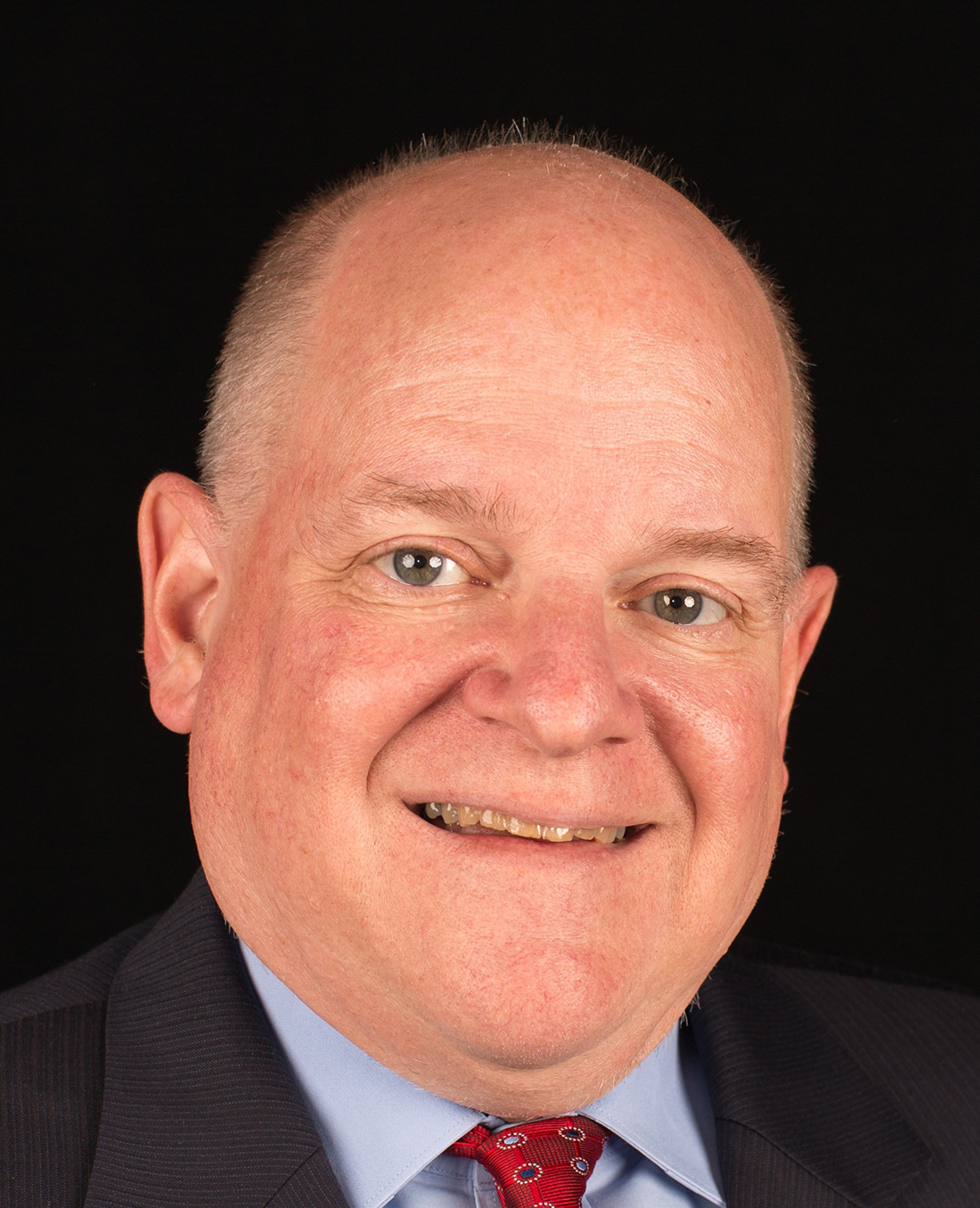
Michael Cornfield, Ph.D.
Associate Professor, GWU Graduate School of Political Management and Research Director of the Global Center for Political Management
Cornfield directs the PEORIA (Public Echoes Of Rhetoric in America) Project, a research initiative developing qualitative and quantitative methods to extract political intelligence from social media data. Project reports and bulletins may be found at here.
He teaches the introductory course in George Washington University's Political Management Program, Fundamentals of Political Management, and supervises the program's thesis and independent study courses.
Cornfield is the author of two books, Politics Moves Online: Campaigning and the Internet and The Civic Web: Online Politics and Democratic Values, co-edited with David M. Anderson. His examination of the impact of Twitter on the first GOP debate in August 2015 will appear in the forthcoming book Social Media, Political Marketing and the 2016 US Election (Routledge, 2018).
Cornfield received his B.A. from Pomona College and his Ph.D. from Harvard University. Before coming to The George Washington University he taught at the University of Virginia and the College of William and Mary. Cornfield also served as a Senior Research Consultant to the Pew Internet & American Life Project.
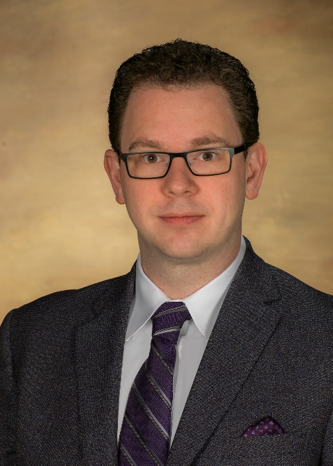
Jay Cost
Contributing Editor, The Weekly Standard
Jay Cost serves as a contributing editor to the Weekly Standard and a columnist for the National Review Online and the Pittsburgh Post Gazette. He is the author of three books, most recently The Price of Greatness: James Madison, Alexander Hamilton, and the Creation of American Oligarchy, to be published in June by Basic Books. He holds a PhD in political science from the University of Chicago. He lives in western Pennsylvania with his wife and two children.
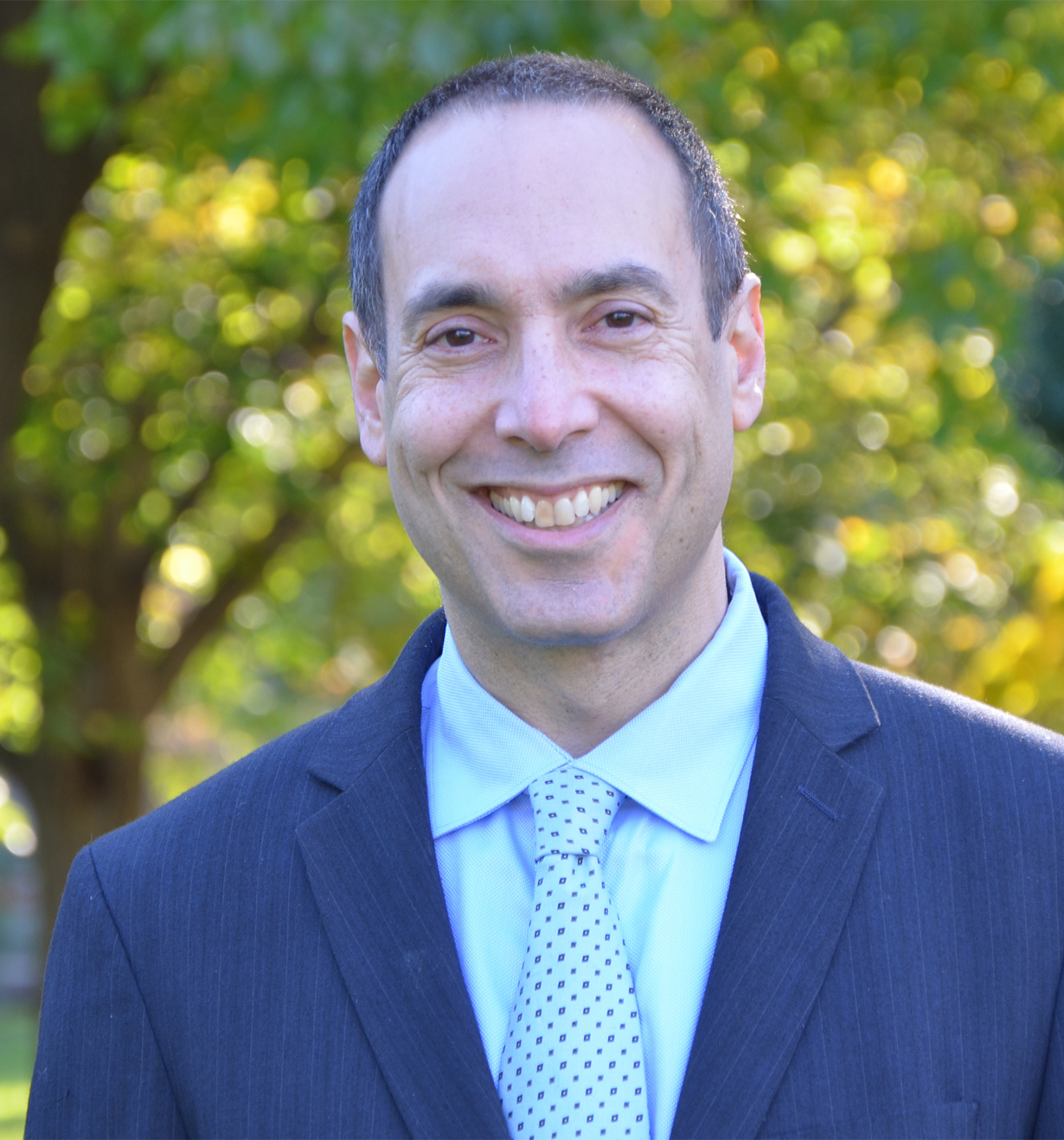
Matthew Dallek, Ph.D.
Political Historian & Associate Professor, George Washington University Graduate School of Political Management
Matthew Dallek, an associate professor at George Washington University’s Graduate School of Political Management, is a political historian whose intellectual interests include the intersection of social crises and political transformation, the evolution of the modern conservative movement, and liberalism and its critics. Dallek has authored or co-authored three books including, most recently, Defenseless Under the Night: The Roosevelt Years and the Origins of Homeland Security, which won the Henry Adams prize from the Society for History in the Federal Government; The Right Moment: Ronald Reagan’s First Victory and the Decisive Turning Point in American Politics, which appeared on the Washington Post and the Chicago Tribune’s annual best-of lists; and Inside Campaigns: Elections through the Eyes of Political Professionals, which the American Library Association’s Choice magazine selected as one of its 2016 “outstanding academic titles.”
Dallek is a frequent commentator in the national news media on politics, history, and public affairs. His articles and reviews have appeared in the Washington Post, Politico, the Atlantic, Perspectives, the Journal of Policy History, and numerous other scholarly and popular publications, and his commentary has been heard on NPR, CNN International, and MSNBC.
Dallek earned a B.A. in history from U.C. Berkeley and a Ph.D. in history from Columbia University. Prior to joining GWU, he served as an associate director of the University of California Washington Center. He also worked as a speechwriter for House Minority Leader Richard A. Gephardt. Born and raised in Los Angeles, Dallek lives in Washington with his wife and two sons.
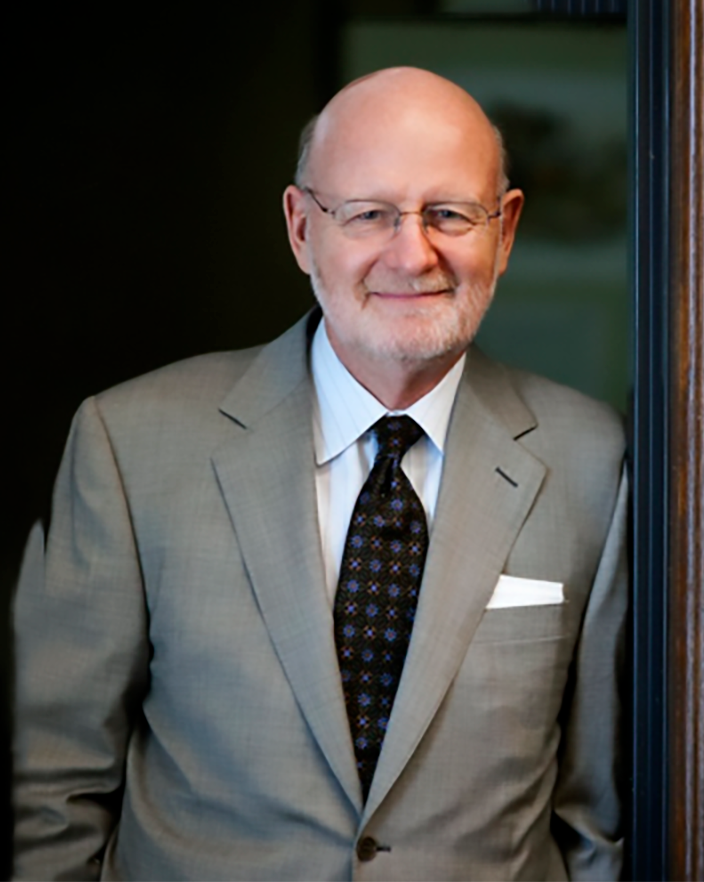
Jack Hamilton, Ph.D.
Hopkins P. Breazeale Professor, LSU Manship School of Mass Communication & Global Fellow, Woodrow Wilson International Center for Scholars in Washington, D.C.
As a professional journalist Jack Hamilton reported at home and abroad for the Milwaukee Journal, the Christian Science Monitor, and ABC radio. He was a longtime commentator for MarketPlace, broadcast nationally by Public Radio International. His work has appeared in the New York Times, Foreign Affairs, and The Nation, among other publications. In the 1980s, the National Journal said Hamilton has shaped public opinion about the complexity of U.S.-Third World relations “more than any other single journalist.”
In government, Hamilton oversaw nuclear non-proliferation issues for the House Foreign Affairs Committee, served in the State Department during the Carter administration as an advisor to the head of the U.S. foreign aid program in Asia, and managed a World Bank program to educate Americans about economic development. He served in Vietnam as a Marine Corps platoon commander and in Okinawa as a reconnaissance company commander.
At LSU, Hamilton was founding dean of the Manship School and executive vice-chancellor and provost. Hamilton received the Freedom Forum’s Administrator of the Year Award in 2003.
Hamilton is author or co-author of six books. His most recent, Journalism’s Roving Eye: A History of American Newsgathering Abroad, won the Goldsmith Prize, among other awards. He earned his bachelor’s and master’s degrees in journalism from Marquette and Boston Universities respectively, and a doctorate in American Civilization from George Washington University.
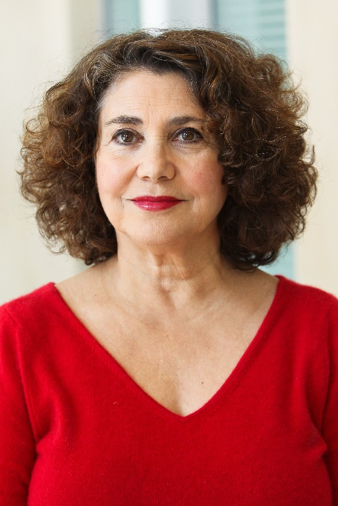
Elaine C. Kamarck
Director, Center for Effective Public Management
Brookings Institution
Elaine Kamarck is a Senior Fellow in the Governance Studies program as well as the Director of the Center for Effective Public Management at the Brookings Institution. She is an expert on American electoral politics and government innovation and reform in the United States, OECD nations, and developing countries. She focuses her research on the presidential nomination system and American politics and has worked in many American presidential campaigns. Kamarck is the author of Primary Politics: Everything You Need to Know about How America Nominates Its Presidential Candidates and Why Presidents Fail And How They Can Succeed Again.

David Karol, Ph.D.
Associate Professor, University of Maryland
David Karol studies parties, interest groups, political institutions and American political development. Before coming to the University of Maryland, he taught at American University, UC Berkeley and the UC Washington Center and was a Visiting Scholar at the Center for the Study of Democratic Politics at Princeton University. He won the "Emerging Scholar" Award for 2010 from the Political Organizations and Parties Section of the American Political Science Association. In his book, Party Position Change in American Politics: Coalition Management, Karol explains key aspects of party position change: the speed of shifts, the stability of new positions, and the extent to which change occurs via adaptation by incumbents. He shows that these factors vary depending on whether parties are reacting to changed preferences of coalition components, incorporating new constituencies, or experimenting on “groupless” issues. Karol reveals that adaptation by incumbents is a far greater source of change than previously recognized. He is also a co-author of The Party Decides: Presidential Nominations before and after Reform and co-editor of Nominating the President: Evolution and Revolution in 2008 and Beyond. David Karol's current research concerns the role of elite opinion in American politics, showing how it produces durable policy disagreements between congresses and presidents regardless of which party controls these institutions.
David Karol has served on the editorial board of the Journal of Politics and the Council of APSA's section on Political Organizations and Parties and is an occasional contributor to The Monkey Cage, the Washington Post's political science blog
Karol holds a Ph.D. from the University of California, Los Angeles, an M.A. from Iowa State University, and a B.A. from Grinnell College
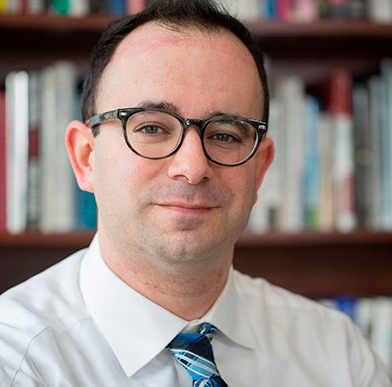
David Karpf, Ph.D.
Associate Professor, George Washington University School of Media & Public Affairs
David Karpf is an associate professor in the School of Media and Public Affairs at George Washington University. His work focuses on strategic communication practices of political associations in America, with a particular interest in Internet-related strategies.
Karpf is the award-winning author of The MoveOn Effect: The Unexpected Transformation of American Political Advocacy and Analytic Activism: Digital Listening and the New Political Strategy. Both books discuss how digital media is transforming the work of political advocacy and activist organizations. His writing about digital media and politics has been published in a wide range of academic and journalistic outlets, including The Nation, Nonprofit Quarterly, and The Chronicle of Higher Education.
Prior to entering academia, Karpf was an environmental organizer with the Sierra Club. He served as National Director of the Sierra Student Coalition in 1999, National Trainings Director from 1998-2000, and National Roadless Campaign Coordinator in 2000. He also served six years on the Sierra Club's Board of Directors (2004-2010). Karpf weaves this practical campaign perspective into much of his research and teaching.
Karpf previously served as an assistant professor in the School of Communication and Information at Rutgers University. He was a resident fellow at the University of Virginia's Miller Center for Public Affairs in 2008-09, a postdoctoral fellow at Brown University's Taubman Center for Public Policy in 2009-2010, and a visiting fellow at Yale University's Information Society Project from 2010–2011. His work has appeared in the Journal of Information Technology and Politics, Policy & Internet, IEEE Intelligent Systems, and Information, Communication, and Society. He has also been published in The Guardian and TechPresident, and is frequently quoted by mainstream publications on technology and politics.
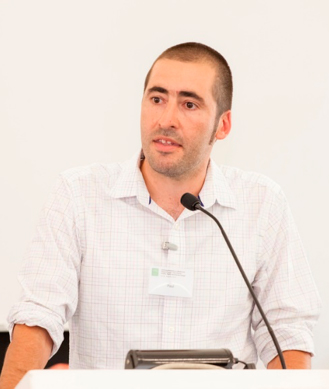
Paul Mihailidis, Ph.D.
Associate Professor, Department of Journalism
Emerson College
Paul Mihailidis is an associate professor of civic media and journalism in the school of communication at Emerson College in Boston, MA, where he teaches media literacy, civic media, and community activism. He is founding program director of the MA in Civic Media: Art & Practice, Principle Investigator of the Emerson Engagement Lab, and faculty chair and director of the Salzburg Academy on Media and Global Change. His research focuses on the nexus of media, education, and civic voices.
His newest books, Civic Media Literacies (Routledge 2018), Civic Media: Technology, Design, Practice (with Eric Gordon) and Media Literacy and the Emerging Citizen outline effective practices for participatory citizenship and engagement in digital culture. His work has been featured in the New York Times, the Washington Post, Slate Magazine, the Nieman Foundation, USA Today, CNN, and others. He co-edits the Journal of Media Literacy Education, and sits on the advisory board for iCivics. He earned his PhD from the Phillip Merrill College of Journalism at the University of Maryland, College Park.
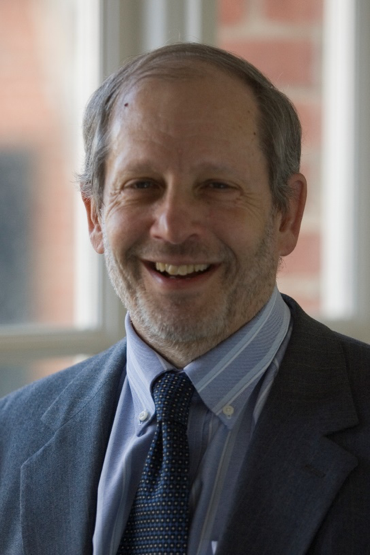
Sidney Milkis, Ph.D.
White Burkett Miller Professor, Department of Politics
Senior Fellow, Miller Center, University of Virginia
Sidney M. Milkis is the White Burkett Miller Professor of the Department of Politics and Senior Fellow at the Miller Center at the University of Virginia. During the 2006-2007 academic year, he was the John Winant Visiting Professor of American Government at Oxford University. His books include The President and the Parties: The Transformation of the American Party System Since the New Deal (1993), Political Parties and Constitutional Government: Remaking American Democracy (1999), Presidential Greatness (2000), coauthored with Marc Landy, The American Presidency: Origins and Development, 1776-2014 (2015), 7th edition, coauthored with Michael Nelson, Theodore Roosevelt, the Progressive Party, and the Transformation of American Democracy (2009), The Politics of Major Policy Reform Since the Second World War, co-edited with Jeffery Jenkins (2014), and Rivalry and Reform: Presidents, Social Movements and the Transformation of American Politics, co-authored with Daniel Tichenor (forthcoming). His articles have been published in Perspectives on Politics, Political Science Quarterly, Publius, The Journal of Policy History, Studies in American Political Development, The Anti-Trust Law Journal, American Political Thought, and numerous edited volumes.
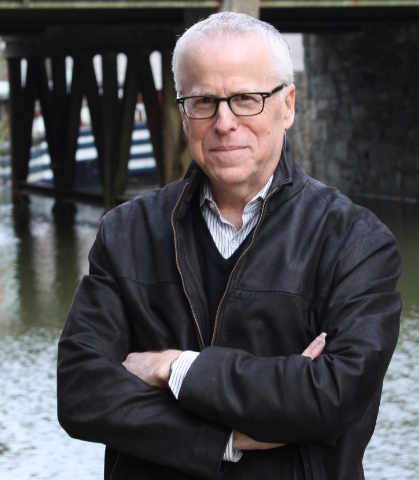
Tom Rosenstiel
Executive Director, American Press Institute
An author, journalist, researcher and media critic, Tom Rosenstiel is one of the nation's most recognized thinkers on the future of media. Before joining the American Press Institute in January 2013, he was founder and for 16 years director of the Project for Excellence in Journalism at the Pew Research Center in Washington, D.C., and co-founder and vice chair of the Committee of Concerned Journalists.
He is the author of eight books, including his first novel, Shining City, about a supreme court nomination. His other books include The Elements of Journalism: What News People Should Know and the Public Should Expect, which has been translated into more than 25 languages and is used widely in journalism education. He is also co-author with Bill Kovach of the book Blur: How to Know What’s True in the Age of Information Overload. His books and work at PEJ have generated more than 50,000 academic citations.
During his journalism career he worked as media writer for the Los Angeles Times for a decade, chief congressional correspondent for Newsweek, press critic for MSNBC, business editor of the Peninsula Times Tribune, a reporter for Jack Anderson’s Washington Merry Go ‘Round column, and began his career at the Woodside Country Almanac in his native northern California.
He earned the Goldsmith Book Award from Harvard, four Sigma Delta Chi Awards for Journalism Research from SPJ and four awards for national for media criticism from Penn State. He has been named a fellow of the Society of Professional Journalists, the organization's highest honor, the Honor Medal for Distinguished Service in Journalism from the University of Missouri Journalism School, the Dewitt Carter Reddick Award for Outstanding Professional Achievement in the Field of Communications from the University of Texas at Austin, and the Columbia Journalism School Distinguished Alumni Award.

Andrew Selee
President, Migration Policy Institute
Andrew Selee became President of the Migration Policy Institute (MPI), a non-partisan think tank, in August 2017. MPI has offices in Washington, DC and Brussels, and conducts research on immigration and integration policies in the United States, Europe, and around the world.
Prior, Selee spent seventeen years at the Woodrow Wilson Center, where he started the Center’s Mexico Institute and later served as Vice President for Programs and Executive Vice President.
In 2017 he was awarded the Andrew Carnegie Fellowship to finish his book Vanishing Frontiers: The Forces Driving Mexico and the United States Together, which will be published by PublicAffairs in June 2018. He is the author of What Should Think Tanks Do? A Strategic Guide to Policy Impact and several other books on Mexico, Latin America, and global issues.
He has been an adjunct professor at both George Washington University (Elliott School) and Johns Hopkins University (Advanced Academic Programs) and he has written extensively in the press.
He holds a PhD in Policy Studies from the University of Maryland, an MA in Latin American Studies from the University of California, San Diego, and a BA from Washington University in St. Louis.
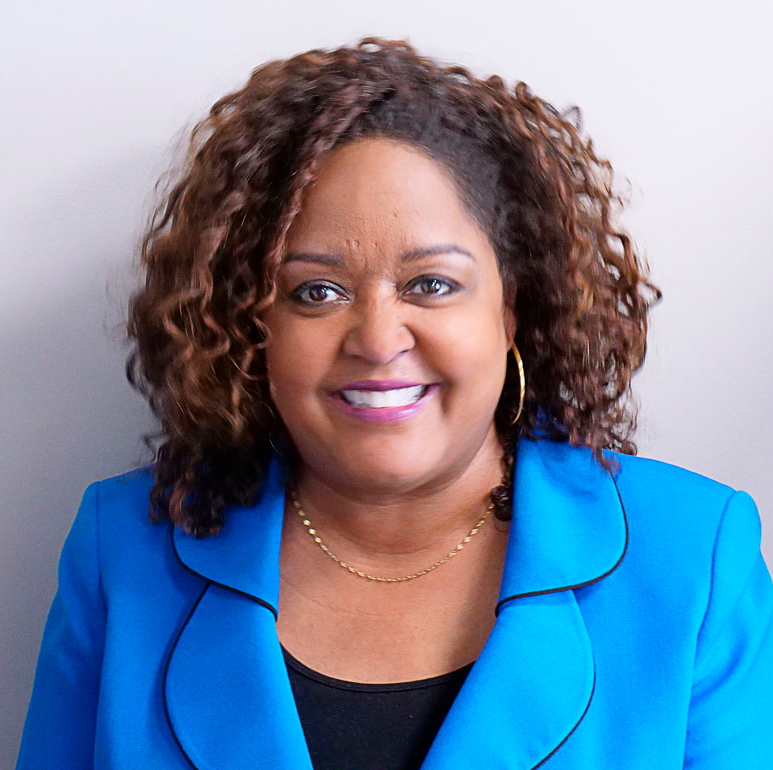
Cheryl W. Thompson
Associate Professor of Journalism, George Washington University School of Media & Public Affairs
Cheryl W. Thompson joined the George Washington School of Media and Public Affairs in 2013 from The Washington Post, where she has distinguished herself as an award-winning investigative journalist covering politics, crime and corruption.
Her fearless reporting led to the prosecution and imprisonment of former Prince George's County (MD) executive Jack Johnson. Thompson has more than 25 years of newspaper reporting experience, including at The Gainesville Sun (Florida), the Los Angeles Daily News, the Chicago Tribune and The Kansas City Star. She arrived at The Washington Post in 1997, where she was a Metro Reporter and National Reporter before moving to the Investigative Unit. She also served as a White House Correspondent during part of President Obama’s first term.
Thompson, who continues to do investigative projects for The Washington Post, did undergraduate and graduate work at the University of Illinois, Urbana-Champaign, and also has a certificate in Investigative Reporting from the Poynter Institute for Media Studies in St. Petersburg, Florida. She was an adjunct lecturer at Georgetown and Howard University and the University of Alaska-Fairbanks. Thompson has won numerous local, regional and national awards, including two Salute to Excellence awards from the National Association of Black Journalists for an examination of homicides in the nation’s capital and the shooting death of a 14-year-old boy by a D.C. police officer over a stolen minibike.
She was part of the Washington Post team that reported on a year-long series on police-involved shooting that won the 2016 Pulitzer Prize for National Reporting. In 2002, Thompson was part of a team of Washington Post reporters awarded the Pulitzer Prize for National Reporting. She also is a 2011 recipient of an Emmy Award from the National Capital Chapter of the National Academy of Television Arts and Sciences, and the Freedom of Information Medal from Investigative Reporters and Editors.
She was elected vice president of the Investigative Reporters and Editors board of directors and also serves on the board at the Fund for Investigative Journalism. She is a member of the National Association of Black Journalists and was named the 2017 NABJ Educator of the Year. Professor Thompson also won the GW Honey Nashman Spark a Life Award for Faculty Member of the Year in 2014.

Ryan Thornburg
Director of Reese News Lab
Reese Felts Distinguished Associate Professor, UNC
Ryan Thornburg is an associate professor in the School of Media & Journalism at the University of North Carolina at Chapel Hill. He is director of the Reese News Lab and a part of the School's Center for Innovation & Sustainability in Local Media. Before joining the School in 2007, Thornburg spent a decade in leadership positions in online newsrooms, mostly working on national and international news at The Washington Post.
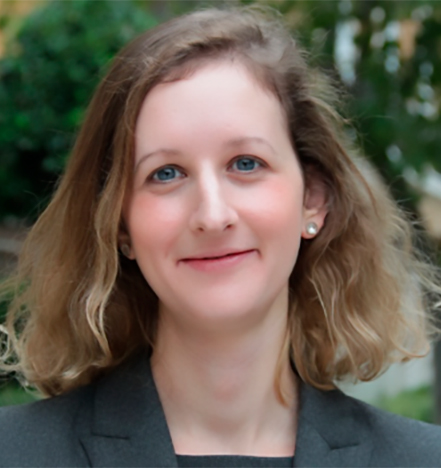
Heidi Tworek, Ph.D.
Assistant Professor of International History, University of British Columbia
Heidi Tworek is an Assistant Professor of International History at the University of British Columbia (UBC). She is a member of the Science and Technology Studies program, the Language Science Initiative, and the Institute for European Studies at UBC. She is a visiting fellow at the Joint Center for History and Economics at Harvard University. She is also a non-resident fellow at the German Marshall Fund of the United States and the Canadian Global Affairs Institute.
Tworek has authored over a dozen articles in journals for history and communications. She has recently completed her first book, News from Germany: The Competition to Control World Communications, 1900-1945, forthcoming in 2019. She is also co-editor of two volumes that will appear in 2018, one on international organizations and the media, the other on the makers of global business. Her writing has been published in English and German in Foreign Affairs, The Atlantic, Politico, War on the Rocks, Wired, Nieman Journalism Lab, Frankfurter Allgemeine Zeitung, Der Tagesspiegel, ZEIT, Internationale Politik, and The Conversation. Heidi has also appeared on the BBC, CBC, and NPR.